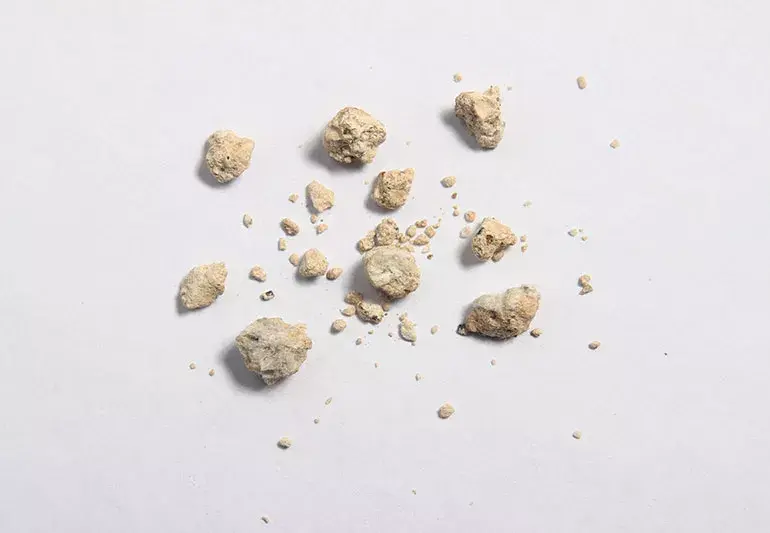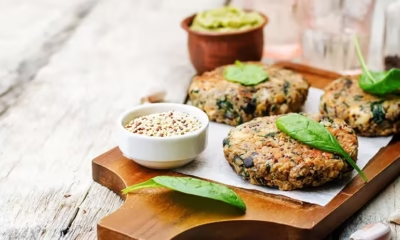Lifestyle
Kidney Stone: Please Read & Save Your Health

It’s safe to assume that nobody wants to relive the agony that can come with passing a kidney stone. (If you’ve never had kidney stones, trust us on this: You REALLY don’t want the experience.)
Given that, it makes sense to do whatever you can to keep those crystals from ever forming in your kidneys and making a painful exit.
So, here are some ways to avoid kidney stones, courtesy of urologist Fabrice Henry, MD.
Tips for preventing kidney stone
One out of 10 people will get a kidney stone sometime during their life. Kidney stones are caused by minerals building up in your urine and glomming together to form crystals. (Fun fact: The largest kidney stone ever recorded was about the size of a grapefruit.)
Decisions you make every day help determine whether you’re one of the unlucky 10% with a kidney stone story, says Dr. Henry. Here’s how you can avoid joining that club.
- Stay hydrated
Staying hydrated is the No. 1 thing you can do to prevent kidney stones!
Your kidneys use urine to unload waste products from your body. Every time you pee, you’re flushing your system to get rid of excess vitamins, minerals, acids and other items that need to be cleared out.
When you get dehydrated, your body produces less urine. Letting your inner tank go empty allows waste products to build up in your kidneys — increasing the likelihood that they’ll bond together to create kidney stones.
“When you don’t drink enough, your urine becomes more concentrated, and you’re more likely to develop stones,” explains Dr. Henry.
Most people need 10 to 12 cups of fluid a day to stay properly hydrated, he adds. Your needs may rise if you’re sweating more due to physical activity or being in warmer temperatures.
READ ALSO: 5 Underwear Tips To Avoid Problems Down There
READ ALSO: Rising Costs Of Health Insurance: 6 Guides Which Policy To Choose
As the Earth’s temperature rises, researchers predict that global warming will increase the risks of dehydration and kidney stone disease.
So, how do you know if you’re properly hydrated? You can usually find the answer in the restroom. Most people pee out about a half-gallon (2 liters) of urine during the day over seven bathroom breaks.
Pee that’s darker in color typically indicates more concentrated urine and potential dehydration. Ideally, urine should be a pale yellow color similar to straw. (Learn more about what urine color means.)
- Adjust your diet
Kidney stone development has also been linked to what people eat, says Dr. Henry. So, what should (or should not) be on your plate? Here are a few suggestions.
2. Limit sodium
Excess sodium in your diet can lead to more calcium in your urine. That’s an issue given that the most common types of kidney stones form with calcium, notes Dr. Henry.
Tips to limit sodium in your diet include:
- Stop salting food at the table. (Hide that salt shaker!)
- Use low-sodium or even sodium-free products.
- Limit processed and convenience foods, which account for the majority of sodium consumed by people
- Read labels to find foods with unexpectedly high amounts of sodium
- Cut down on fructose
High fructose corn syrup is a sweetener that pops up on many food products’ ingredient lists. Getting too much of it in your diet has been connected to a long list of health issues, including kidney stones.
The best way to avoid high fructose corn syrup is to feature more natural, unprocessed foods in your meals, says Dr. Henry.
- Eat more citrus fruits
Citrus fruits such as lemons, oranges and melons are high in citric acid, which helps block the formation of kidney stones by binding to calcium. Citric acid can even help break down any stones or crystallized masses that have come together.
2. Limit animal proteins
Beef, poultry, pork, eggs and fish are all animal proteins that can trigger the formation of uric acid kidney stones. It’s best to limit these in your diet if you’re prone to kidney stones, shares Dr. Henry.
3. Avoid foods high in oxalates
If you have a history of kidney stones, it’s often best to limit foods high in a natural compound known as oxalate. This includes items such as certain greens, vegetables, beans and nuts.
- Talk to your healthcare provider to determine if you need to make this adjustment.
- Get enough calcium
Wait? Isn’t calcium a big part of kidney stone formation? The answer to that is YES — but that doesn’t mean you should cut back on calcium-rich foods. In fact, not getting enough calcium in your diet can contribute to the formation of kidney stones, says Dr. Henry.
The one caveat? There’s research indicating that taking calcium supplements (particularly without a meal) may increase kidney stone risk.
4. Maintain a healthy weight
Numerous studies show that obesity increases your risk of kidney stones. The association between higher body fat and kidney stone risk exists independent of factors such as sex, age, smoking status or level of physical activity, too.
It’s believed that the world’s growing obesity epidemic may be contributing to recent increases in kidney stones, even among people with usually low rates of getting them. (That group includes young children.)
READ ALSO: Run From Overweight Or Obesity, See The Serious Health Conse..
READ ALSO: Cheap Foods: Millions Of Nigerians At Risk Of Obesity, Cancer, Dementia..
Obesity also brings an elevated risk of health issues, such as diabetes, high blood pressure (hypertension) and high cholesterol (hyperlipidemia) — all of which can contribute to kidney stone formation.
“With the declining health of the public, one of the symptoms is an increase in kidney stones,” reiterates Dr. Henry.
5. Exercise regularly
It seems you might be able to run, walk, bike or swim away from kidney stones.
A 2024 study found that “weekend warriors” and active individuals who exercised between 30 to 60 minutes a day had a lower prevalence of kidney stones than those who were inactive. (Working out regularly can also help you maintain a healthy weight.)
Lastly, Pay attention to medications
Medications may contribute to the development of kidney stones, notes Dr. Henry. Talk to your healthcare provider about different options if you get kidney stones while on a certain medication.
-courtesy: Cleveland Clinic

























